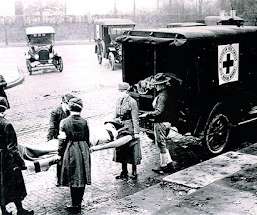A Resilience Charter
Emergency Planning
MARCH 23, 2022
The purpose of this charter is to specify the responsibilities of the state and citizens in the field of resilience against disasters, crises and major public emergencies and incidents. Disaster’ refers to an event that causes damage, destruction, interruption of services and important activities, and possibly casualties. Preamble 1.1












Let's personalize your content